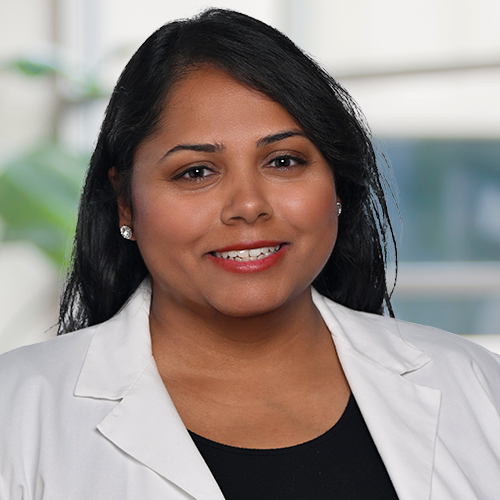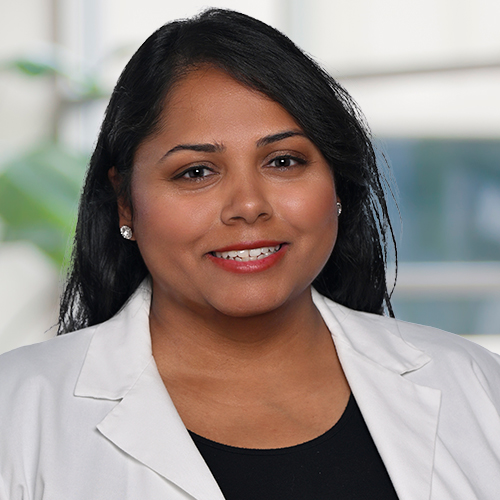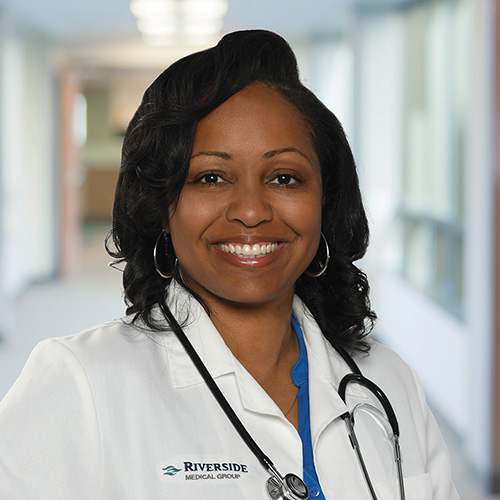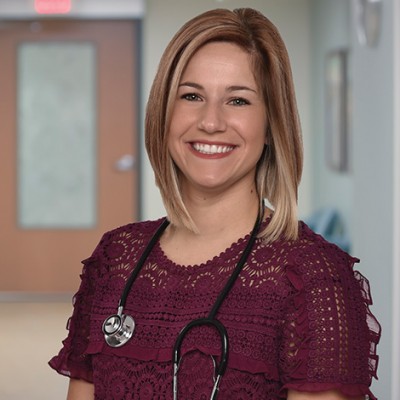Nurse Practitioners as Primary Care Providers
April 21, 2025What Does a Nurse Practitioner Do?
When it comes to delivering high-quality, patient-centered care, nurse practitioners (NPs) play a vital role in today’s healthcare system. These advanced practice registered nurses combine clinical expertise with a strong emphasis on disease prevention, health education, and holistic patient care.

But, what exactly sets NPs apart, and what does their day-to-day work look like? Let’s take a closer look at what nurse practitioners do with Liji Surrao, FNP-BC, primary care provider at Riverside Healthcare's Internal Medicine Bourbonnais office.
The Path to Becoming a Nurse Practitioner
An NP is an advanced practice registered nurse (APRN) with additional education and training. While physicians undergo a different and more extensive training path, NPs often perform many of the same functions in patient care. Surrao explains the path to becoming an NP, which starts with a registered nursing (RN) license.
“You must get a Bachelor of Science in Nursing degree, which is usually about four years of schooling. When you graduate, you can start working as a nurse so you gain some experience. Then, you enter a graduate program, which is a master's program, with a certificate of nurse practitioner. That's generally about three years. Some people go on to do a doctorate program, and that's an additional year. Before you can sit for your boards in your training, you perform about five hundred to eight hundred hours of clinical practice.”
A Holistic, Collaborative Approach to Care Ensures Optimal Outcomes
In their role, NPs offer several key benefits to the healthcare system. They take a holistic approach to care—focusing on the whole person rather than just the illness—and they emphasize prevention, health screenings, and lifestyle counseling to support better long-term outcomes. Nurse practitioners also help improve access to care, particularly in areas facing primary care provider shortages, by offering many of the same services as physicians. Additionally, they work collaboratively with other healthcare professionals to ensure comprehensive, coordinated care for their patients.
“We follow that holistic approach model, and we try to build good relationships with our patients so we know how they live, what their goals are, and what their values are. We always try to stick to their unique needs with our care plan,” states Surrao. “Another element is education. There are a lot of patients who we think have ‘common knowledge’ about health. It's not so common. Everyone has a different background.”
The Role of an Nurse Practitioner
Nurse practitioners are qualified to prescribe medications, order and interpret diagnostic tests, and treat both acute conditions like urinary tract infections (UTIs), upper respiratory infections, and minor injuries, as well as chronic issues such as hypertension, diabetes, respiratory complications (e.g. COPD), and high cholesterol.
In some states—about 28—NPs have full practice authority, meaning they can provide care independently without physician oversight. In other states, like Illinois, NPs still work under a collaborative agreement with a physician.
“With the primary care shortage, NPs can fill that gap because sometimes you may not get into a physician in a timely manner. Their panel might be filled really fast or booked up. As an NP, we can get you in, and if we need to, refer you to someone with a specialty. We work with our physicians closely and collaborate with everyone,” assures Surrao.
Focus on Preventative Care
Preventive care is essential for maintaining overall health and managing chronic diseases. Regular screenings—such as immunizations, colonoscopies, mammograms, and blood work—help detect health issues early, leading to better outcomes and prognosis.
Nurse practitioners emphasize prevention by encouraging patients to stay up to date on routine checkups, much like performing regular maintenance on a car to avoid breakdowns. Their goal is to educate patients and promote prevention as the most effective form of medicine.
“Just remember, as NPs we're highly trained. We go through schooling and are licensed to provide most of the same services a physician performs. We take a personalized approach to your care. With our holistic strategy, we listen to your concerns and hopefully build that great relationship with you. Ultimately, when you're choosing a provider, you just want to find someone who can meet your needs and help you achieve your healthy goals, whoever that provider may be.”
Find the right Primary Care Provider for you at myrhc.net/acceptingnew.



